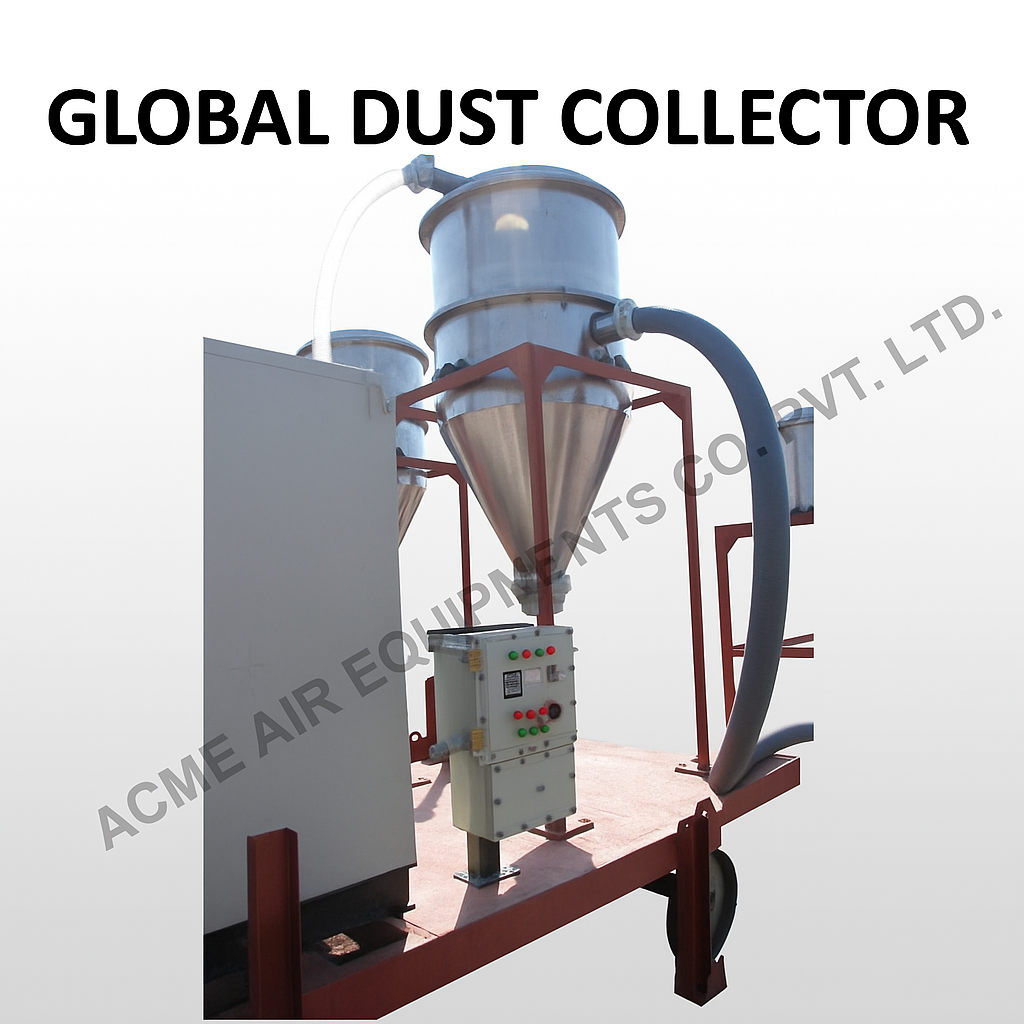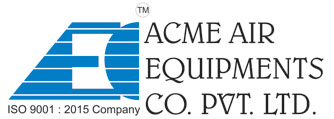Table of Contents
Dust collection systems are essential for industries where air quality and worker safety are paramount. These systems capture and filter dust particles from the air, ensuring cleaner, safer environments and preventing long-term health risks associated with inhaling airborne pollutants. The demand is rising across the globe, driven by strict environmental regulations, heightened industrial activities and growing awareness about worker health and safety.
This article takes an in-depth look at the global demand and supply of dust collection systems, focusing on key countries such as India, the United States, Germany, Brazil, Vietnam, Indonesia, Mexico and Canada.

Global Demand for Dust Collection Systems
The demand is influenced by various factors including industrialization, government regulations and the awareness of health hazards caused by dust inhalation. Below, we will explore the demand and supply for dust collection systems in different countries, highlighting how industry-specific needs shape the market dynamics.
India: Rapid Industrialization and Stringent Regulations
India, with its fast-growing industrial base, is one of the key players in the demand for dust collection systems. The country is experiencing a boom in manufacturing sectors such as cement production, mining and steel manufacturing, all of which generate significant dust. As industrial growth accelerates, the need for effective dust management systems is increasing.
Government regulations, particularly the Air (Prevention and Control of Pollution) Act, have prompted industries to invest in dust collector systems to comply with air quality standards. This is especially relevant in urbanized areas and industrial hubs where pollution control is a top priority. The Indian market is seeing a growing demand for centralized dust collection systems that can handle large-scale operations efficiently.
Manufacturers in India are also working to localize the production to meet demand and reduce costs. This trend has created opportunities for both domestic and international companies offering affordable yet high-performance dust collection solutions.
United States: Advanced Technology and Industry Compliance
In the United States, the demand for dust collection systems is driven by stringent regulatory standards, such as those set by the Occupational Safety and Health Administration (OSHA) and the Environmental Protection Agency (EPA). These regulations require industries to manage dust emissions effectively, especially in sectors like mining, pharmaceuticals, food processing and chemical manufacturing.
The high-speed dust collectors used in the US are designed with advanced filtration technology, such as reverse-pulse cleaning and often come equipped with variable frequency drives (VFDs) for better energy efficiency. The US market also handles both large and small-scale operations while maintaining low energy consumption.
Moreover, dust collector equipment in the US continues to innovate with improved filtration systems and higher capacity systems to meet increasing industrial demands and regulatory requirements. As a result, there is steady growth in the demand for these systems across a variety of industries, including construction, manufacturing and food production.
Germany: High-Efficiency Systems for Industrial Applications
Germany, known for its industrial precision and engineering, is a significant market for dust collection systems. The country has robust manufacturing sectors, particularly in automotive production, machinery and chemical processing, where dust is a common byproduct.
The demand for industrial dust collection systems in Germany is also driven by technological advancements. Manufacturers are focused on producing high-efficiency dust collectors that offer low energy consumption, high filtration rates and ease of maintenance. Additionally, German manufacturers are leading the way in developing centralized systems that can be integrated into large-scale industrial operations.
Brazil: Growing Industrial Sector and Environmental Regulations
Brazil’s industrial sector is rapidly expanding, especially in mining, agriculture and cement production, all of which generate significant amounts of dust. As Brazil’s industrial base grows, so does the need for efficient dust extraction systems to protect workers’ health and comply with environmental standards.
The Brazilian government has introduced various laws to control pollution, which has further increased. As industries strive to meet Environmental Protection Agency (EPA) standards, there is a growing need that can handle large volumes of dust and ensure compliance with the regulations. Brazilian companies are increasingly investing in high-performance dust collection technology to improve air quality in the workplace and enhance operational safety.
Vietnam: Industrial Expansion and Environmental Awareness
Vietnam has become an industrial hotspot in Southeast Asia, with a strong focus on textiles, furniture manufacturing and electronics. As industries grow in Vietnam, the demand for dust collection systems has followed suit. These systems are essential for minimizing the harmful effects of dust generated in these industries, particularly in textile factories where dust can be hazardous to workers’ respiratory health.
The Vietnamese government has implemented regulations to limit dust emissions, creating a growing market for dust collection equipment. Vietnam’s demand for dust collectors is also increasing as companies seek solutions that offer both cost-effectiveness and high efficiency. The use of centralized dust collection systems is gaining traction, as they allow for centralized management of dust control across multiple production areas.
Indonesia: Developing Market for Dust Collection Solutions
In Indonesia, industrial growth in sectors like woodworking, palm oil and mining is driving the demand for dust collection systems. Indonesia’s large manufacturing sector produces significant dust, especially in palm oil refineries and sawmills. To improve air quality and meet environmental guidelines, businesses in Indonesia are increasingly adopting systems that provide reliable and efficient dust extraction.
The demand in Indonesia is also influenced by improving industrial safety standards. As local industries focus more on worker health and safety, the adoption of dust extraction equipment is expected to rise. Manufacturers are exploring more cost-effective and energy-efficient solutions to cater to the growing demand in Indonesia’s developing industrial market.
Mexico and Canada: North American Neighbors with Rising Demand
In Mexico, the demand for dust collection systems is growing as industrial activities expand, particularly in the automotive, electronics and mining sectors.
Mexico has increasingly adopted stricter environmental standards, driving demand in various industries. The market of this system in Mexico is expected to continue expanding as more industries modernize and comply with regulatory requirements.
Similarly, in Canada, environmental concerns and the push for greener industries are driving demand. Centralized dust collection systems are becoming more popular in large industrial operations like oil sands, mining and forestry, where dust control is vital. Canada’s regulations are encouraging industries to invest in high-efficiency dust collectors that meet environmental and workplace safety standards.
Supply of Dust Collection Systems in Emerging Markets
The supply of dust collector is growing with the increased demand in developing markets. Manufacturers are focusing on delivering cost-effective, reliable and high-performance dust extraction systems that cater to a wide range of industries. Additionally, local manufacturing capabilities in countries like Brazil, Vietnam and Mexico are improving, allowing for quicker delivery times and more affordable products.
Technological Innovations
Technological innovations in dust collection equipment are playing a significant role in meeting the rising demand. Many systems now feature reverse-pulse cleaning technology, which allows for more efficient filtration and longer operational life. Furthermore, dust collectors with cleaning systems and low maintenance needs are becoming more common in emerging markets, as industries seek to reduce operating costs and downtime.
Production and Distribution
The manufacturing is becoming more prevalent, especially in markets like Brazil and Mexico. Manufacturers are also expanding its distribution networks to provide better after-sales service and maintenance to meet the specific needs of each region.
Conclusion
The global demand and supply of dust collection systems are shaped by the expanding industrial activities, regulatory pressures and the growing focus on improving workplace safety and air quality. Emerging markets in India, Brazil, Vietnam, Indonesia, Mexico and Canada are driving the demand for dust extraction systems, as industries in these regions modernize and implement stricter environmental standards.
As the market continues to grow, Acme Air Equipments Co. Pvt. Ltd., as a leading manufacturer of dust collection systems are focusing on providing more efficient, cost-effective and technologically advanced dust collection solutions that cater to the unique needs of these markets. With advancements in technology and increased local manufacturing capabilities, this market is poised for steady growth across the globe.
FAQs about Dust Collection System
What is a dust collection system?
A dust collection system is an industrial equipment designed to capture, filter and remove dust particles from the air, improving air quality and ensuring the safety of workers and the environment.
Why is there a growing demand for dust collection systems in emerging markets?
The demand is driven by industrial growth, stricter environmental regulations and increased awareness of the health risks associated with inhaling dust particles in industries such as mining, textiles and manufacturing.
What are the key features of a high-performance dust collection system?
High-performance dust collection systems feature efficient filtration technologies, low maintenance needs, automated cleaning systems and energy-efficient motors, which help minimize operational costs.
How do centralized dust collection systems work?
A centralized dust collection system is designed to collect dust from multiple machines or areas in a facility, directing all dust into a single filtration unit, allowing for easier management and more efficient dust extraction.
About Author

CEO
Mr. Vishwesh Pardeshi is the CEO of Acme Air Equipments Company Pvt. Ltd., an industrial and engineering goods manufacturing company based in Ahmedabad, Gujarat (India). He has taken over the responsibility from founding Partners and Directors of the Company, and is now leading a talented group of professionals since 2020 by bringing in vast industrial and management expertise. By qualification, he holds a Bachelor Degree in Mechanical Engineering and also holds a MBA degree from reputed institutes. Under his leadership, the Company has successfully executed prestigious projects by delivering high quality and world class products from a state of the art manufacturing facility which combines CNC-enabled precision manufacturing and strong after sales support. In line with the Vision, Mission and Core Values of the Organization, Mr. Vishwesh Pardeshi continues to drive Quality, Reliability and Global Expansion at Acme Air Equipments Co. Pvt. Ltd.









